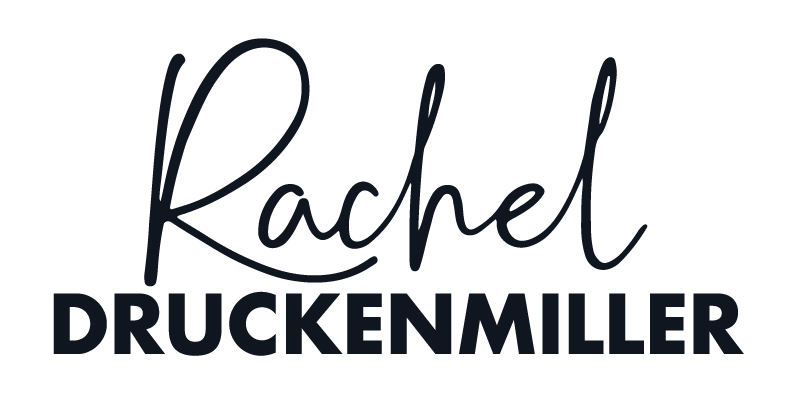11 Prompts to Spark Connection + Trust with Your Team
Last week, I had the opportunity to speak at a Mega Session at the national SHRM conference in New Orleans.
It was a joy to spend time with thousands of Human Resources leaders and an honor to have hundreds of them join me in person and virtually for my session about igniting intentional leadership.
We explored three specific ways leaders can show up and be more intentional, and, therefore, more effective and impactful, by being self-aware, curious and caring.
What Defines a Great Leader?
We started the session by reflecting on someone we admire, someone who has had a positive and profound impact on our life. We thought about leadership qualities they display.
With nearly 700 responses, we came up with a pretty inspiring word cloud:
The bigger the word, the more people who typed it in when asked to share the traits or qualities of leaders they admire. It looks like these qualities were at the top of the list:
Kind
Caring
Honest
Supportive
Compassionate
Encouraging
Trustworthy
Empathetic
Positive
Integrity
These are all HUMAN qualities that reflect warmth, which was found to be a more important predictor of leadership effectiveness than competence in a study of over 51,000 managers. Not surprisingly though, the best leaders display both warmth and competence.
In the session, we talked about the power of curiosity. In the words of one of my favorite coaches, Ted Lasso, quoting Walt Whitman (who never actually said these words):
Be curious, not judgmental.
I promised you 11 ways to be a better leader, so here they come. First, I shared seven prompts to reflect on ourselves to help us show up with greater self-awareness and effectiveness and questions to ask our peers, allowing them to reflect back what they see.
7 Questions to Reflect on or Ask for Feedback from Others
Who am I helping and why does it matter?
What shows up when I do? What qualities do I bring into a room?
What qualities or characteristics do you display when you are MOST effective as a leader?
What qualities or characteristics do you display when you are LEAST effective as a leader?
What am I doing well? What's working?
What could I do better or differently?
What’s one thing I could change that would make a meaningful difference to you?
Those questions help us with elevating our self-awareness and adapting appropriately. The next set of questions help us spark connection, trust, motivation and collaboration.
The Friday Rose Exercise
One of the exercises from the session that I wanted to share with you to help you foster connection and collaboration among your team members (and "unmute" them!) is called the Friday Rose Exercise.
I've heard variations of it before from people who have attended workshops I've facilitated over the past few years. Most recently, I heard about it in connection with a Wall Street banker who was stumped about how to genuinely and consistently connect and engage with his remote team members at the start of the pandemic. Everyone was feeling disconnected, and he needed to do something to bring them together.
So many business meetings focus on numbers-based outcomes (which are important), but they fail to catalyze meaning, reflection, trust-building or connection.
That's why I love the idea of integrating a practice like this into your weekly check-ins with team members.
At the end of each week, bring your team members together and ask them to reflect on and share their responses to these questions:
What was a rose? Something cool or exciting that happened that week
What was a stem? Something you learned or a way you grew
What was a thorn? Something that didn't go right or got messed up or that you wish you'd done differently
What is a bud? Something you're looking forward to in the week ahead
After a few weeks of doing this practice, it became the norm. It opened up new opportunities for connection and even collaboration among his team members.
Here's why it works:
When we reflect on past wins or lessons learned, we build a sense of gratitude, meaning and motivation.
Sharing thorns helps us build trust because it invites everyone to be a bit vulnerable and talk about something that didn't go well, which is something most of us don't want to admit at work. When we normalize it, we reduce the stigma around it and create a more psychologically safe workplace.
When we look to the future and think about what we're anticipating - personally or professionally - in the week ahead, we keep ourselves feeling motivated and energized.
Gratitude, meaning, trust, motivation and energy are qualities all teams and leaders need right now, perhaps more than ever before.
Wrapping It Up
I hope that reading this article has been thought-provoking for you and that you find these 11 prompts to be useful for personal reflection and / or with your team. If you've found value in what I've shared, I'd love to hear from you! Feel free to comment below or send me a message.
Let's start by practicing the rose exercise together:
👉 What is a rose, stem, thorn or bud you'd like to share?
Let me know below!
How Can I Help?
Over the last 15+ years, I’ve devoted myself to helping organizations, leaders and teams go from burned out and checked out to energized, motivated and connected. I've done this through interactive keynotes, workshops, leadership trainings and retreats onsite and nearly 300 times virtually.
If you're interested in learning more about my services for yourself or someone else on the topic above or other topics, start here and we can find time to connect.
If you found this helpful...please share it, and tag me if you do 😉



